'I was inundated with incel messages within an hour'
- Published
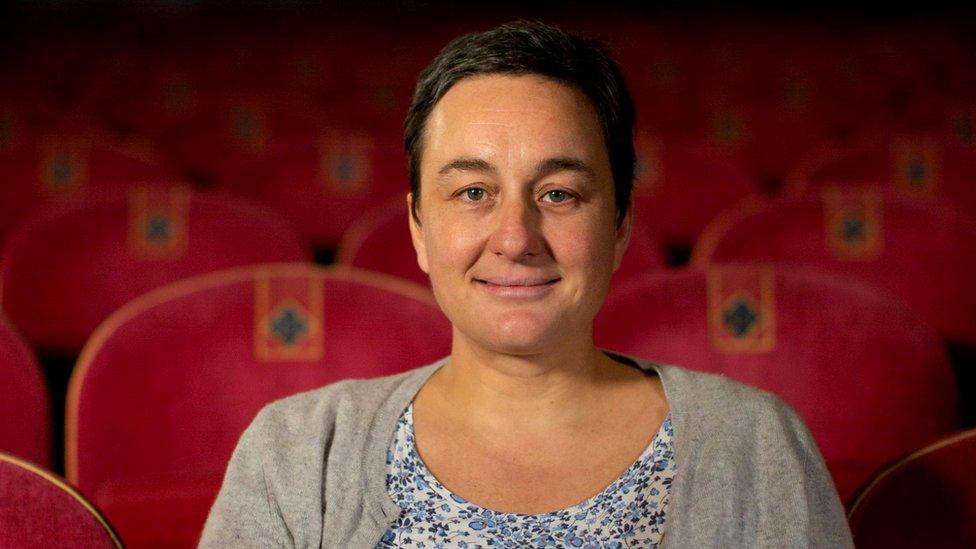
Clare Duffy was surprised at the response she got when investigating incel culture
When writer and theatre director Clare Duffy started to explore the world of incels, she had no idea what she was letting herself in for.
Within days she was pulled into the dark side of an anti-female culture.
Incel is short for "involuntary celibate", a member of a misogynistic culture which has amassed a following online.
It has hit headlines due to the arrest of online personality and self-declared misogynist Andrew Tate.
But ideologies based on distrust and hatred towards women have been gaining space in the mainstream over the past decade through online channels, especially social media platforms like YouTube and TikTok.
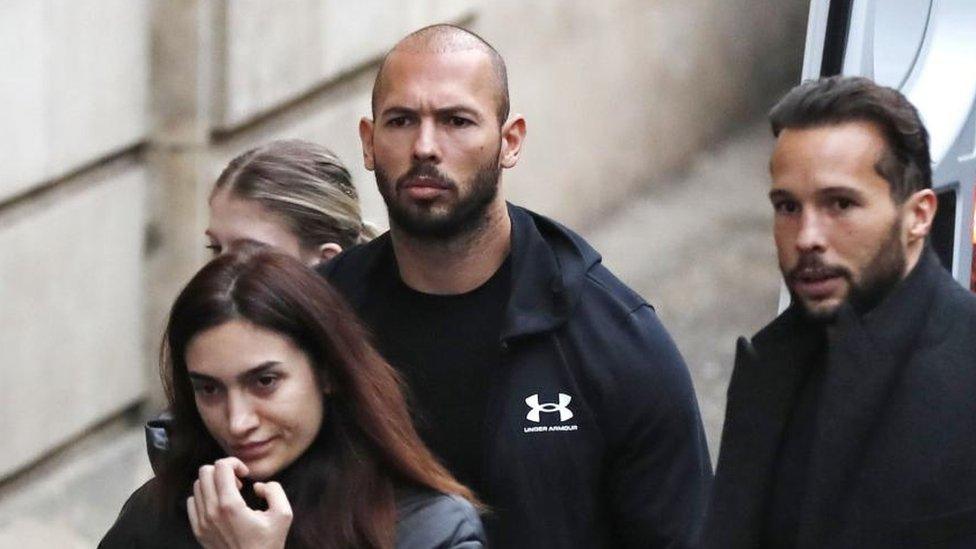
The controversial online influencer is detained in Romania as part of an investigation into allegations of human trafficking and rape - which he denies
To find out more, Clare set up an internet identity as a 23-year-old man called Clive and posed the question - how do I get a girlfriend?
Within an hour she'd received a barrage of messages.
"They started off quite benign," she says.
"Like you need to have a shower, eat right, take exercise. Then it becomes you need to be brave, to be strong, to be powerful, you need to take control of the space and the situation, and gradually the messages become more and more about power and dominance."
A few days later, she found the messages had become even darker.
They referred to "pills" which are used in incel ideology to denote progress in radicalisation.
The concept was first used in the film The Matrix in which Neo, played by Keanu Reeves is offered a choice between a red pill which allows him to question his surroundings, or a blue pill which allows him to continue in a simulated world.
Incel culture also refers to a "black pill" which is much more nihilistic. Men believe that women and society are biased against them and there is no hope of them ever finding love or acceptance.
"Those messages were basically about accepting that you'll never get a girlfriend, and you may as well lay down and rot - LDAR," she said.
"You start to understand the reasoning behind incel violence. It's very rare but that journey from a bit of sexism that is so common it won't be called out, to real hatred to real self hatred is one we wanted to explore."
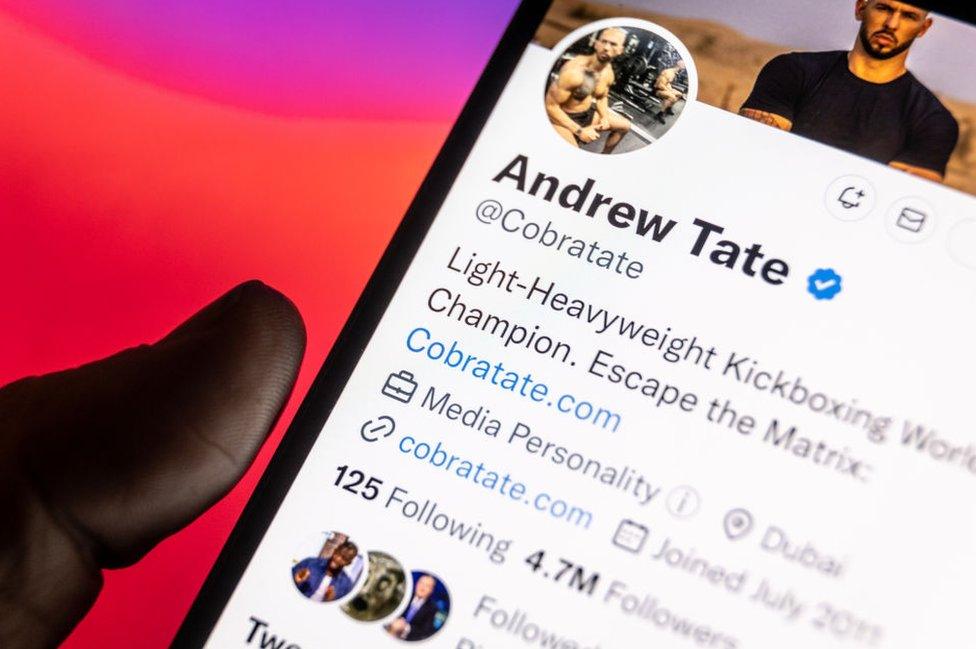
Andrew Tate's social media refers to The Matrix
Clare then went on to explore the responses "Clive" received in two workshops with teenagers, aged between 15 and 18.
The workshops were split into teen boys and teen girls.
She said the teens told of pornography being used secretly in the classroom, and "not being able to get away from these constant messages of how to be a man, how to be a woman
Clare continued: "The young women were really aware of a lot of misogyny that was online which was slipping into their real world.
"For the young men, it was all about football. They get their cues for what it means to be a man from the football players they watch."
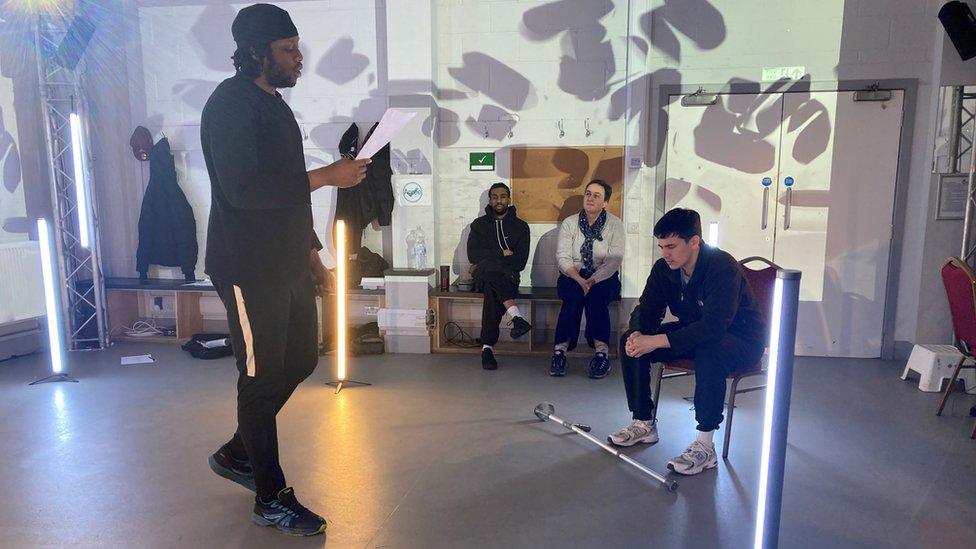
Clare Duffy has created a theatre experience based around two "footballers" and set in Tynecastle Stadium
The company were wary about allowing the young people to be interviewed but they gathered some statements.
"It was eye-opening to learn what [incels] are and what they do. I think if people knew more they could stop people going down that rabbit hole," said one of the young women.
"I knew quite a bit but only on surface level. I think it's really prevalent because it's online and not really regulated," said another.
One 15-year-old boy said: "I now understand the severity and how it can be taken to extremes. It's an important project because I don't think we know that much about it."
Safeguarding obligations
Clare's company Civic Digits approached Hearts Football Club about staging their show Many Good Men inside Tynecastle Stadium.
"It's a really important issue, and a scary one and important for us with the safeguarding obligations we have with the young men in our football academy, for them to understand some of the risks and dangers they have in this space." says Hearts CEO Andrew McKinley.
And he believes it can have positive benefits for the club, and the male-dominated world of football.
"We are seeing a change in the demographic and the upsurge in our women's team. There's no doubt on match day it's still male dominated so it would be great to see some younger girls. We want everyone to feel welcome and to feel like it's a safe space for them."
The show, which begins its second run this week, invites an audience to take part in an immersive and interactive performance around Tynecastle Stadium, where they are instrumental in the outcome.
Each show starts with the same premise - there's been an incel shooting in Edinburgh and two footballers are trying to find out more about the culture around it.
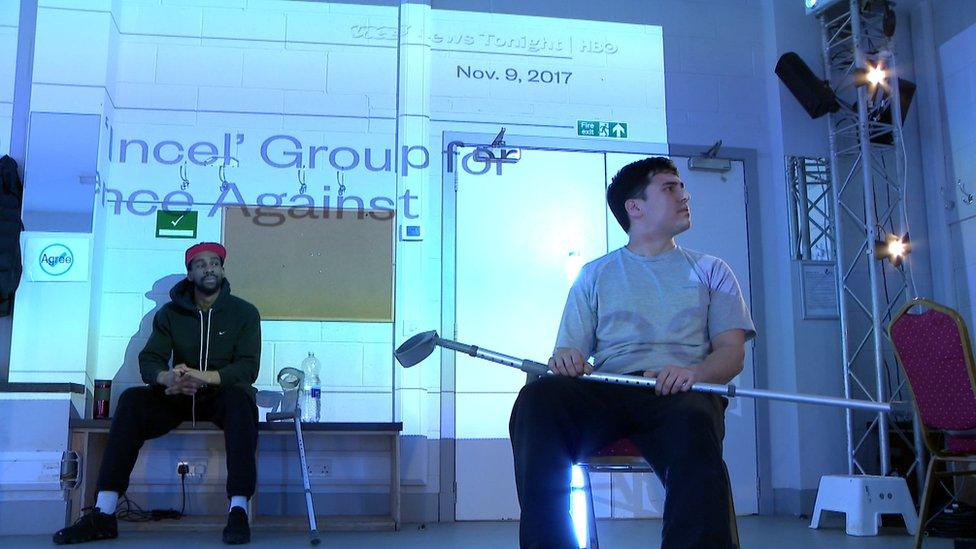
Many Good Men will run two different productions - one all-male and one all-female
The performances are free to locals, schools and youth groups, but the project doesn't stop there. The workshops with young people will be used for research on online incel culture in Scotland.
Clare hopes the project it can tour around Scotland, and further afield.
"The performance is just one stage," she said.
"We hope the research will have an impact for policy makers and we've already agreed to take it further afield to Romania."
"This show is a way of experiencing the internet together. We usually experience it on our own. We all react differently to content and by coming together collectively, we can have that conversation."